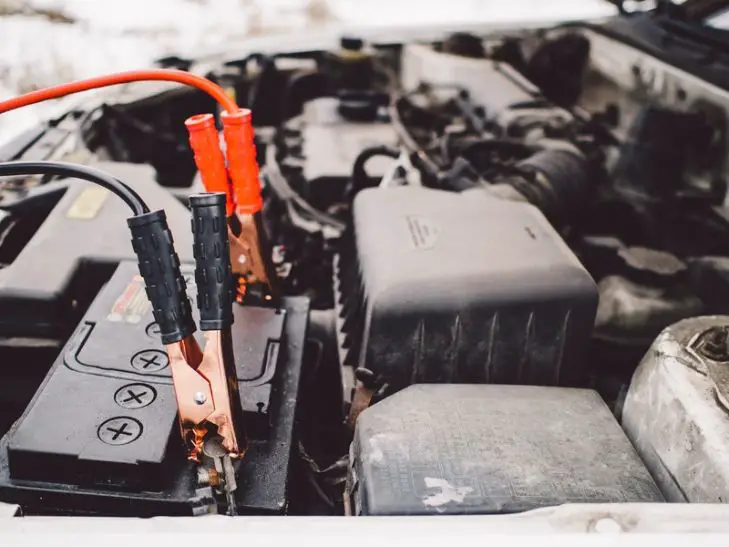The car battery is not only one of the most important parts of the car but also it is a dangerous one. Being a hazardous component there are plenty of myths floating around about car batteries on the internet. The most prominent one is, can a car battery shock you.
Whether the car battery can effectively shock you or do harm depends on a few factors. In layman’s terms, at best you might feel a little shock if you use yourself as a conductor but it will be nowhere near enough to electrocute you.
In this post, I’ll be answering in detail if a car battery can shock you as well as other things you should know. Stick with me till the end as I straighten the fact and myths. Once you reach the end, you will have substantial knowledge of this topic.
Voltage vs. Amperage
Voltage is a measurement of the difference in electrical potential between two places, akin to the amount a river decreases as it runs from point A to point B. Current, as opposed to voltage, quantifies the total charge flowing through a point on its route per second.
The amount of water moving past a place along a river in a second is referred to as current. A few droplets of water cascading down a steep hill carry significantly less energy than a raging torrent gushing down a moderate slope. Voltage and current are both important in reality. A powerful river rushing over a cliff carries more energy than one rushing down a gradual slope.
Can A Car Battery Shock You?
Car batteries have the ability to deliver huge currents. Despite this, you will not be electrocuted. The answer to this puzzle is that, the harm is caused by current flowing through your body, not by the maximum amount a battery can deliver.
The amount of current that flows through an item is determined by three factors:
- the object’s electrical resistance
- the applied voltage
- the quantity of current the source can provide
The skin of a human touching a vehicle battery has a high resistance, resulting in low current, and the battery has a low voltage, resulting in low current.
Even though a car battery may produce a lot of currents if it’s connected correctly, your body doesn’t allow it properly. Voltage plays a part in limiting the overall current in your body.
Shock Threshold Chart
| mA | Effect on the human body |
| 0.5-3 | Tingling |
| 3-10 | Pain and muscle contraction |
| 10-40 | ‘Let go’ threshold |
| 40-75 | The respiratory system gets paralyzed |
| 100-200 | Ventricular fibrillation |
| 200-500 | Heart tightly clamps |
| 1500+ | Organs and tissues start to burn |
How Many Volts Is Lethal?
A hazardous quantity of current cannot travel through the body without sufficient voltage to cause harm or death. More than fifty volts is enough to generate a potentially deadly current through the body, as a general rule of thumb.
The length of the shock and where the shock enters the body are two more elements that might influence the severity of an electric shock.
A jolt that travels from one arm through the chest to the other arm, for example, is far more harmful than a shock that travels between two toes.
Why 12volt Car Batteries Can’t Shock You?
The nominal voltage of car batteries is 12V, although it might vary somewhat depending on the charge state. That isn’t enough to cause an issue on its own.
You may conceivably get a voltage high enough to approach a hazardous area if you linked multiple batteries in a series.
The voltage of the battery is the key reason why you may safely touch the positive and negative terminals of a conventional automobile battery and walk away unharmed.
While automotive batteries have the potential to kill you in terms of amperage, the voltage in this case becomes the limiting factor.
When Working Around Car Batteries, Keep These Things In Mind
- If the acid comes into touch with your skin while attempting to open the battery, it can cause significant harm.
- The exterior protective layer of automotive batteries is frequently packed with acidic chemicals. As a result, touching the battery without first cleaning the plastic body is not suggested.
- When working on autos, avoid wearing any metal jewelry.
- If at all feasible, use insulated gloves. This will assist you to avoid getting in contact with battery acid or having to deal with unpleasant fiddling as a result of an inadvertent touch to the battery terminal.
- If possible, place a cloth between you and the car’s battery connections. Especially if you aren’t wearing gloves that protect your hands.
Bottom Line
Car batteries can get dangerous if you don’t know what you are doing. For this reason, you should have a better understanding of how the battery works as well as how to handle it.
Although the battery won’t be able to electrocute you it would pose danger from other angles. As these devices use harmful substances like sulfuric acid, lead you should take all the precautions before handling the batteries.
Related Posts:
